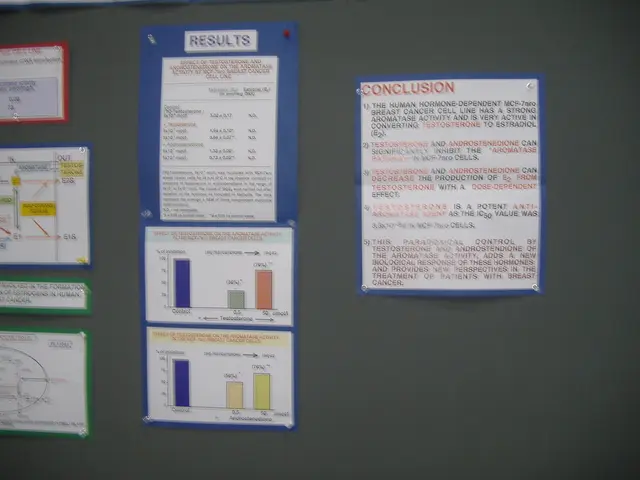Examining the ways drivers engage with evolving automotive innovations
Revised Article:
Let's dive into the fascinating world of the MIT Advanced Vehicle Technology (AVT) Consortium, an academic-industry powerhouse leading the charge in understanding how drivers engage with emerging automobile technologies. Established back in 2015, the AVT Consortium has been on a mission to create a data-driven understanding of human attitudes and behaviors towards various driver assistance systems.
This research is more than just a scientific exploration – it's a quest to foster public trust in AI-powered assisted and autonomous vehicles. Bryan Reimer, a research engineer at the MIT AgeLab, and the founding father of AVT, puts it succinctly: "Without trust, technology adoption will never reach its potential, and may stall."
One recent endeavor of the AVT Consortium was the J.D. Power Mobility Confidence Index Study. The findings? While public eagerness for autonomous vehicles has slightly increased after a two-year decline, trust remains a crucial factor that require more in-depth exploration.
So, how exactly does the AVT Consortium go about building this trust?
First off, they gather extensive real-world data on driver interactions across a diverse range of age groups, experience levels, and vehicle types. This massive dataset provides a unique opportunity to study system performance, driver behavior, and attitudes towards advanced driving technologies. The goal? To identify the most promising attributes of various manufacturers' technologies, making it faster and easier for new designs to emerge.
The AVT Consortium's work extends far beyond just analyzing the data. They're actively shaping the design of vehicle technologies to better meet the needs and concerns of real-world drivers. By understanding how people interact with these technologies, the consortium is able to create AI systems that feel trustworthy and intuitive, thereby fostering confidence in the technology.
This work is an interdisciplinary collaboration, involving experts from academia, industry, and consumer organizations. By working hand in hand with various stakeholders in the automotive, technology, and insurance industries, the AVT team can tackle the full spectrum of challenges and opportunities presented by emerging vehicle technologies.
In the face of a rapidly evolving mobility landscape, fostering trust is paramount to successful adoption of AI-driven vehicle technologies. The AVT Consortium is leading the charge in building trust through their commitment to data-driven insights and human-centered design. "Our mission at AVT," explains Reimer, "is not only to develop a data-driven understanding of how drivers across the lifespan use and respond to various vehicle technologies, but also to provide actionable insights into consumer attitudes to enhance safety and usability."
The future of mobility relies on our ability to build systems that drivers can trust and feel comfortable using. The work of the AVT Consortium is paving the way for a safer, smarter, and more trusted mobility future. Much like its parent organization, MIT CTL, the AVT Consortium stands as a world leader in supply chain management research and education with over 50 years of expertise.
Incorporated Enrichment Data:
- Real-World Scenario Exploration: The AVT Consortium investigates real-world scenarios to better understand the integration of AI in vehicle systems, assessing the capabilities and limitations of AI in enhancing vehicle safety and functionality[2].
- Safe and Efficient AI Development: By actively shaping AI's role in the automotive sector, the consortium helps ensure that AI is developed with high reliability and efficiency, addressing gaps between AI's capabilities and real-world needs[2].
- Informing Safety Policies: The research conducted by AVT informs safety policies and product development, contributing to a safer driving environment. This work helps build trust by demonstrating the practical benefits of AI in vehicle safety[2].
- Industry Collaboration: As a collaboration between academia and industry stakeholders, AVT fosters partnerships that are essential for developing technologies that meet both technological and societal expectations, further enhancing public trust[2][3].
- The MIT Advanced Vehicle Technology (AVT) Consortium gathers extensive real-world data on driver interactions for a better understanding of how people engage with automobile technologies and AI-powered assisted and autonomous vehicles.
- The AVT Consortium shapes the design of vehicle technologies to meet the needs and concerns of real-world drivers, aiming to create AI systems that feel trustworthy and intuitive.
- In the rapidly evolving mobility landscape, fostering trust is crucial for successful adoption of AI-driven vehicle technologies, and the AVT Consortium leads this effort through their commitment to data-driven insights and human-centered design.
- The research conducted by the AVT Consortium informs safety policies and product development, contributing to a safer driving environment. This work helps build trust by demonstrating the practical benefits of AI in vehicle safety.
- As a collaboration between academia and industry stakeholders, the AVT Consortium fosters partnerships that are essential for developing technologies that address societal expectations, further enhancing public trust.
- The AVT Consortium's work in the realm of data-and-cloud-computing and automotive technology extends to shaping safe and efficient AI development in the automotive sector, thereby ensuring that AI is developed with high reliability and efficiency.




